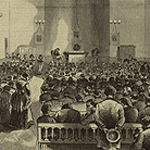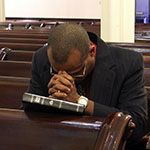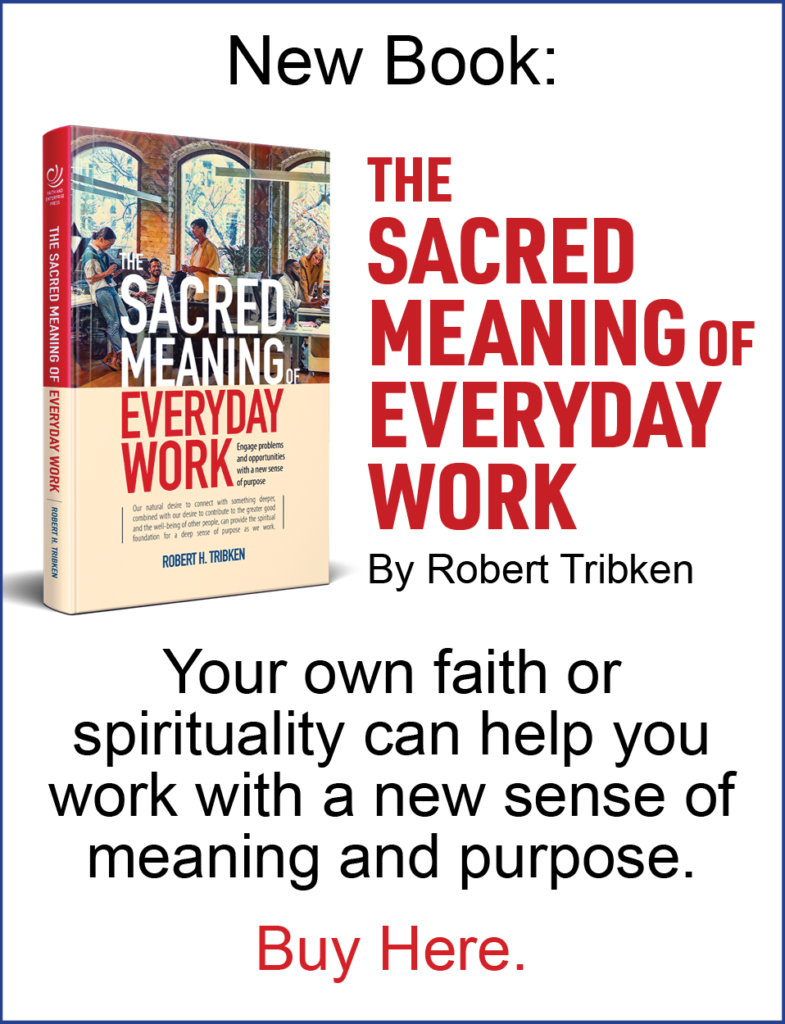Category: Spiritual Practices
Flow States and Spirituality at Work
 If you have experienced a state of flow, you probably remember it as quite enjoyable. It is usually associated with heightened concentration, deeper awareness, and greater effectiveness, and is sometimes thought of as being “in the zone.” Most of us would probably like to spend more time in flow, whether in leisure activities or work.
If you have experienced a state of flow, you probably remember it as quite enjoyable. It is usually associated with heightened concentration, deeper awareness, and greater effectiveness, and is sometimes thought of as being “in the zone.” Most of us would probably like to spend more time in flow, whether in leisure activities or work.
The state of flow is considered a positive psychological condition and has been researched primarily from a nonreligious point of view, and appropriately so. But I believe there could also be a religious or spiritual dimension to this experience. Being aware of this possible spiritual dimension might help us move more easily toward a flow state.
Prayer and Our Sense of Mission
 A Reflection on Mark 1:35-39
A Reflection on Mark 1:35-39
Early in his ministry, Jesus went off and prayed by himself in the early morning hours while it was still dark and emerged with a clearer, more powerful sense of mission. This story might have an essential insight for us as we consider the relationship between prayer and the sense of mission we bring to our work.
Noon Prayer Meetings and the Revival of 1857/58: The Workplace Connection

A Case Study: The Fulton Street Prayer Meetings
A powerful revival occurred in 1857 and 1858. Sometimes known as the
“Businessmen’s Revival” by its contemporaries, a distinctive aspect of the revival was the extraordinary popularity of noon prayer meetings organized and led by business people. These meetings built on the pattern established by the Fulton Street Prayer Meetings.
There are important lessons that can be drawn from this success of this movement and the manner in which the prayer meetings were organized.
This is an updated version of an earlier article.
We Need More Silence!
 Writing in the Harvard Business Review Online (The Busier You Are, the More You Need Silence), Justin Talbot-Zorn and Leigh Marz lay out the arguments for why busy people need more quiet time.
Writing in the Harvard Business Review Online (The Busier You Are, the More You Need Silence), Justin Talbot-Zorn and Leigh Marz lay out the arguments for why busy people need more quiet time.
According to the authors, research shows that “taking the time for silence restores the nervous system, helps sustain energy, and conditions our minds to be more adaptive and responsive to the complex environments in which so many of us live, work and lead.” They provide selected references from both neuroscience and psychology.
They make a number of concrete recommendations involving ways to build more quiet time into our busy lives. These range from five minutes of meditation and reflection during the work day to longer quiet periods such as an afternoon spent in nature or a weekend meditation retreat.
In this article, Talbot-Zorn and Marz focus exclusively on the secular benefits of intentional silence, not the religious and spiritual. This is understandable given that they are writing for a general business audience; I might do the same.
But I think this exclusively secular approach leaves out an important aspect of intentional silence — the spiritual experience it sometimes evokes. . .
Lectio Divina and Guigo’s Ladder for Monks
 Lectio Divina is a traditional monastic spiritual practice that combines scripture and a form of contemplative prayer. It has recently become popular among contemplative Christians as a way to a deeper prayer experience. It is one of the practices we have taught in our Spiritual Practices for Your Work Life retreats.
Lectio Divina is a traditional monastic spiritual practice that combines scripture and a form of contemplative prayer. It has recently become popular among contemplative Christians as a way to a deeper prayer experience. It is one of the practices we have taught in our Spiritual Practices for Your Work Life retreats.
Spiritual Intelligence: Does it exist?
I ran across an article written in 2000 by psychologist Robert Emmons that is well worth considering (I wish I had seen it earlier). Emmons raises the possibility that spirituality might be considered a form of intelligence consisting of five components (I am quoting Emmons):
Charles Marsh on Bonhoeffer Without a Church
 One striking aspect of Charles Marsh’s new biography about Dietrich Bonhoeffer is the degree to which Bonhoeffer’s church seemed to disappear. For someone as committed to, and embedded within, the church as Bonhoeffer, this must have been a highly distressing experience. How the experience seemed to affect him can have important lessons for us.
One striking aspect of Charles Marsh’s new biography about Dietrich Bonhoeffer is the degree to which Bonhoeffer’s church seemed to disappear. For someone as committed to, and embedded within, the church as Bonhoeffer, this must have been a highly distressing experience. How the experience seemed to affect him can have important lessons for us.


